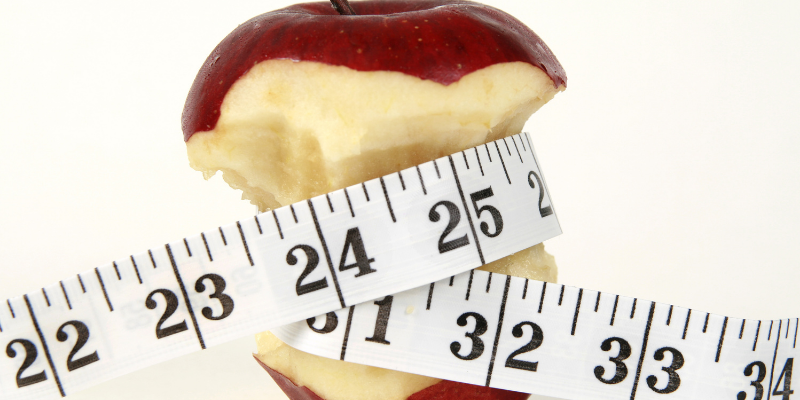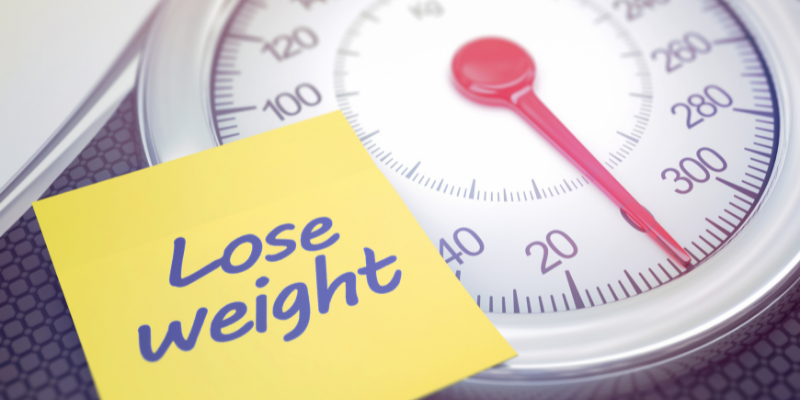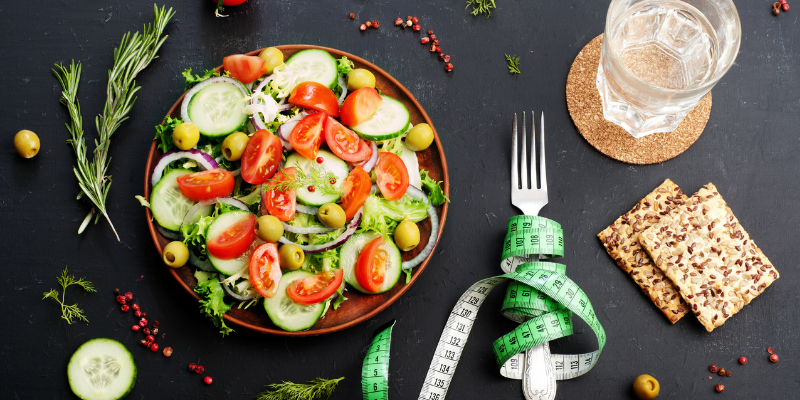How Much Weight Can You Lose In A Month Under A Strict Diet?
How much weight can I lose in a month? Can a strict diet help me lose weight? Is quick weight loss healthy? These are common questions that come to mind when there are many extreme diets and weight loss programs available today, promising fast results within a short time. This article explains how a strict diet plan could help you lose weight.
Can You Lose Weight With A Diet Alone?
Yes, it is possible to lose weight by following a strict diet. Losing weight through a diet is about creating a calorie or energy deficit. Consuming only up to 1000 calories each day can help you lose around 0.5 to 1kg of weight per week. (3500 calories = 0.5kg approximately). When you combine this with moderate physical activity, it gives better results. Meanwhile, do keep in mind that unsupervised dieting can cause low energy levels and nutritional deficiencies. It can stop you from sticking to your plan for a long time. Hence, it is advisable to get a customised diet plan from a professional nutritionist.
Must Read: Non-Surgical Weight Loss Treatment
Here are a few pointers to note before you begin your diet. These tips will help you remain consistent:
- Set Realistic Goals: A realistic goal is achievable, will keep you going for a longer time, and help you adopt a healthy lifestyle.
- Choose A Diet Plan With Nutritious, Low-Calorie Foods: Calorie needs are subjective and depend on individual body type, genetics, and other factors. A certified dietician can help you choose a suitable diet plan.
- Follow a Science-Backed Diet Approach: A diet approach backed by science involves eating a high-protein, nutrient and fibre-rich, low-carb diet. Increasing your lean protein intake (2.3 to 3 grams per kg) will help you gain muscle mass. It keeps you full for longer, eliminating the urge to consume extra calories.
- Try Intermittent Fasting: Intermittent fasting helps you create an energy deficit as you alternate between a fasting window and an eating window. You can try the 16/8 or 5:6 technique of intermittent fasting once or twice a week along with your weight loss diet plan for better results.
- Manage Your Portion Sizes: Small portioned meals offer faster weight loss results. You can adopt portion control without depriving yourself of certain foods. It also helps in long-term weight maintenance by cultivating healthy eating habits.
- Include More Soluble Fibre: Including fibre-rich foods in your diet like fresh vegetables and fruits helps prevent overeating, promotes satiety, and aids weight loss.
- Track Your Calorie Consumption: The best way to check your progress is by noting your daily calorie consumption and eating habits on an app or in a food journal. With this, you can make healthy adjustments if and when needed.
- Cut Back On Unwanted Calories: Develop the habit of reading food labels thoroughly and choosing your foods mindfully. The easiest way to cut back on unwanted calories is by avoiding sugary, salty, unhealthy, processed, and refined foods or beverages. Avoid sauces and condiments high in calories too.
- Stay Hydrated: Often, our brain registers dehydration as hunger, so it is essential to stay hydrated throughout the day. It also helps remove toxins and keeps you full.
Must Read: Effective Indian Diet Plan To Lose 5kg In 2 Weeks
How Much Weight Can You Lose In A Month Under A Strict Diet?
You can lose around 2 to 4kgs in a month by following a strict, healthy, yet balanced diet, where you will be limiting your calorie consumption to 1000 every day. Creating a calorie deficit will help you lose up to 1 kg or sometimes a little more in a week. In some cases, following a strict diet – containing high protein and fibre and fewer carbohydrates and fats coupled with physical activity – can further boost your weight loss efforts where you can lose a little over 4kgs too.
How To Track The Weight You Lost In A Week or A Month?
Losing weight at a slow and steady rate is better for the body and long-term weight maintenance. It is safe to lose 1kg per week, which means you can lose up to 4kgs in a month.
Must Read: How to Lose weight In One Month?
To Track Weight Loss, You Can Use The Following Methods:
- Use a weighing scale that gives an accurate measurement. Weigh yourself before you begin your weight loss journey and continue to do it every week.
- A measuring tape will give you a good estimate of your waist circumference. You can measure it every week to learn about your progress.
- Measuring your body fat percentage along with scale weight gives a more holistic picture. Many calculators online help determine your body fat percentage using your current weight and waist circumference.
- There are other advanced methods to measure body fat like callipers, bioelectrical impedance scales, hydrostatic weighing, etc.
- Note changes, if any, in the fitting of your clothes.
A few things to keep in mind while checking your body fat measurements:
- Monitor changes once a week or once a month.
- Maintain a weight loss journal.
- Have a professional do the job.
- Measure yourself under the same conditions every time. Factors like food intake, hydration levels, muscle gain, and temperature of your skin can affect the results of advanced body fat measurements if done on bioelectrical impedance scales.
Conclusion
When trying to lose weight through diet, it all comes down to creating a calorie deficit. By tweaking your diet and eating habits, you can maintain a small but consistent calorie deficit that helps you prevent gaining extra weight. Choosing a diet plan that focuses on nutrient-dense and low-calorie foods will increase satiety and promote sustainable weight loss.
Our certified subject matter experts do extensive research and collate facts from reputed scientific journals and international studies to create informative and engaging articles related to all your dermatology concerns. They strive to help you decipher medical jargon, distinguish fact from fiction and overcome paranoia. Our qualified medical board or expert panel goes a step further to verify these facts based on their rich academic knowledge, vast clinical experience and critical industry insights to ensure you consume only medically accurate content that empowers you to make informed decisions about your hair and skin-care treatments and weight management. Check out our Editorial policy for further details
https://www.ncbi.nlm.nih.gov/pmc/articles/PMC4429709/https://www.ncbi.nlm.nih.gov/pmc/articles/PMC6163457/
https://www.nhlbi.nih.gov/health/educational/lose_wt/eat/calories.htm
https://www.nhlbi.nih.gov/health/educational/lose_wt/eat/diary.pdf











